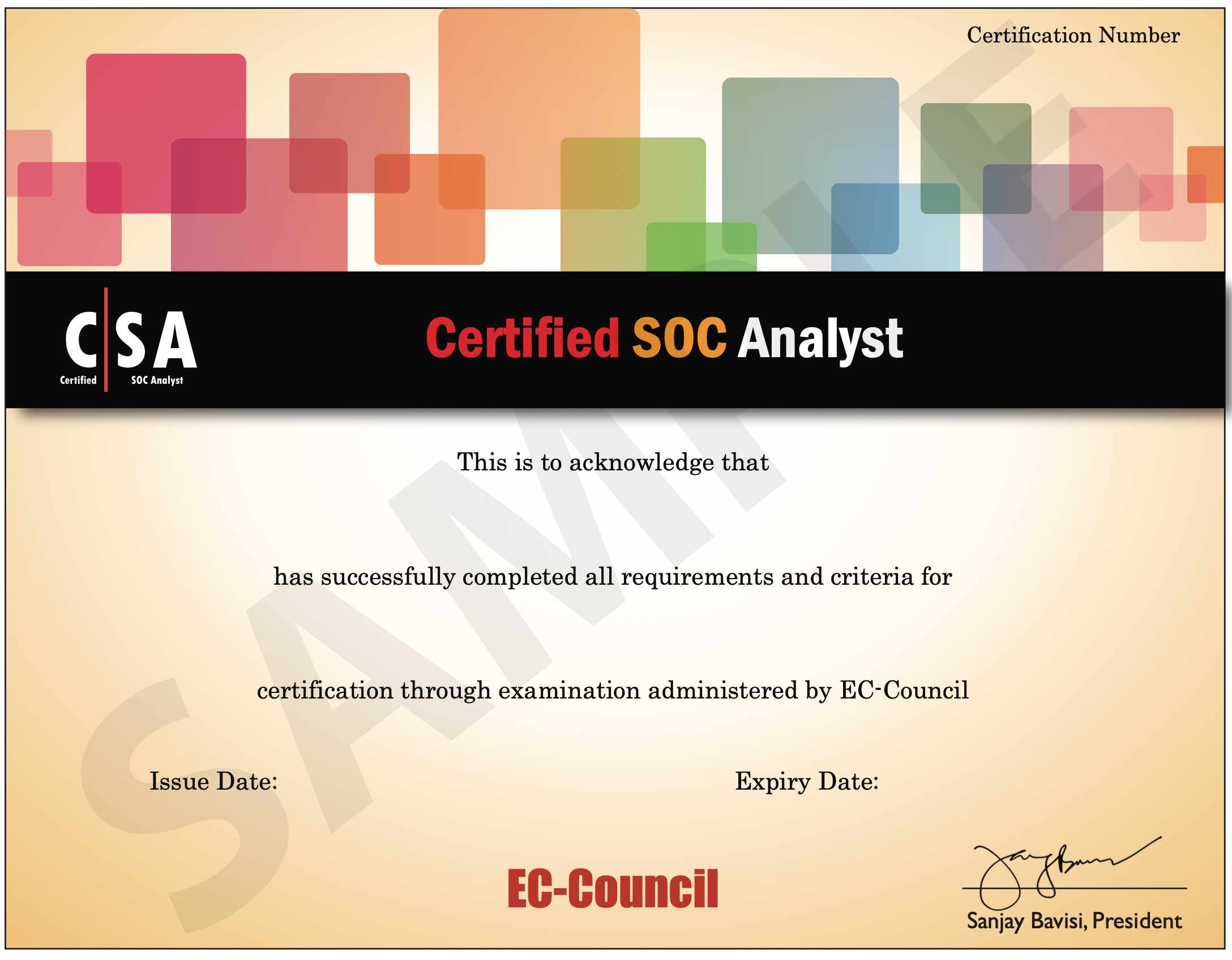Threat Intelligence Analyst (CTIA)
Course Overview

EC-Council’s Certified Threat Intelligence Analyst (CTIA) program is a comprehensive specialist-level certification designed for individuals involved in collecting, analyzing, and disseminating threat intelligence information. C|TIA covers various topics, including the fundamentals of threat intelligence, the use of threat intelligence tools and techniques, and the development of a threat intelligence program.
This course focuses on refining data and information into actionable intelligence that can be used to prevent, detect, and mitigate cyber attacks. The program provides credible professional knowledge required for a successful career in the domain and enhances your overall skills, thus increasing your employability.
It addresses all the stages involved in the “Threat Intelligence Life Cycle,” and this realistic as well as futuristic approach makes it one of the most comprehensive threat intelligence certifications in the market today.
Learning Outcomes
Who Should Attend ?
- Ethical Hackers
- Security Practitioners, Engineers, Analysts,Specialist, Architects, Managers
- Threat Intelligence Analysts, Associates, Researchers, Consultants
- Threat Hunters
- SOC Professionals
- Digital Forensic and Malware Analysts
- Incident Response Team Members
- Any mid-level to high-level cybersecurity professionals with a minimum of 3-5 years of experience.
- Individuals from the information security profession and who want to enrich their skills and knowledge in the field of cyber threat intelligence.
- Individuals interested in preventing cyber threats.
Exam Information
Certification :
The C|TIA exam can be challenged after the completion of the complete, official C|TIA training program. Candidates that successfully pass the exam will receive their C|TIA certificate and membership privileges. Members are required to adhere to the policies of EC-Council’s Continuing Education Policy.
Course Content & Modules
Master the Cyber Threat Intelligence (CTI) Lifecycle
Learn the complete threat intelligence lifecycle from planning and direction to collection, processing, analysis, and dissemination of actionable intelligence.
- Planning and Direction
- Analysis and Production
- Collection
- Dissemination & Integration
4 Types of Threat Intelligence
Understand the four main types of threat intelligence: strategic, tactical, operational, and technical intelligence, and their specific use cases in cybersecurity.
- Strategic
- Operational
- Tactical
- Technical Threat Intelligence
Threat Hunting and Detection
Develop proactive threat hunting skills using intelligence-driven approaches to detect advanced persistent threats and sophisticated attack campaigns.
Data Collection Techniques from Multiple Sources and Feeds
Master intelligence collection from diverse sources including OSINT, commercial feeds, dark web monitoring, and internal security logs.
Threat Analysis and Threat Intelligence Evaluation, Report and Dissemination
Learn to analyze threat data, evaluate intelligence quality, and create actionable reports for different stakeholders and decision-makers.
Latest Threat Intelligence Tools/Platforms and Frameworks
Explore cutting-edge threat intelligence platforms, SIEM integration, and frameworks like MITRE ATT&CK for comprehensive threat analysis.
Performing Threat Intelligence through Python Scripting
Automate threat intelligence tasks using Python scripts for data collection, analysis, and integration with security tools and platforms.
Intelligence In SOC Operations, Incident Response, and Risk Management
Integrate threat intelligence into Security Operations Centers, incident response procedures, and enterprise risk management frameworks.
Threat Intelligence in the Cloud Environment
Apply threat intelligence methodologies to cloud security challenges, including cloud-native threat detection and multi-cloud intelligence strategies.
Earn Your Industry-Recognized Certificate
Upon successfully passing the examination for this course, participants will be awarded a certificate, an example of which is shown below.




